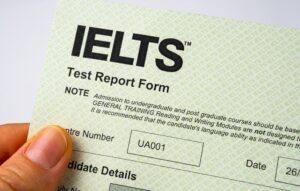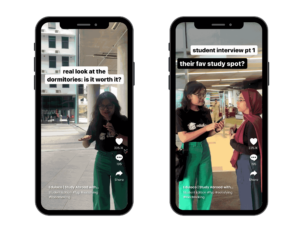Home » study in UK
Get Your Offer Letter Within 14 Days From These UK Universities
What’s an offer letter?
An offer letter is issued by universities in the United Kingdom to a student once they have fulfilled the university requirements. There are two types of offer letters, which are Conditional and Unconditional. Stay tuned for more on that later.
During my time in university, many of my friends hesitated to study abroad because they assumed the offer letter would take a long time to be issued.
That is not true at all.
In fact, many universities in the UK will send an offer letter in 14 days or less!
Before we begin, let us convince you (and your parents) why you should study in the UK:
- Job opportunities
More companies are seeking a diverse workforce, and your multilingual ability is a plus point. There is a variety of occupations in the UK, such as accountant, marketing manager, nurse, teacher, software engineer, UX designer, and web developer. Besides, you can earn up to £200,000 annually!
 Image source: Pexels
Image source: Pexels
- Better quality of living
According to The Better Life Index, UK is one of the best developed countries for foreign students to study, live, and work in terms of quality of life. From personal security to social engagement, UK is placed in the Top 20% for work life and wealth!
- Excellent place to settle down
Let’s be real about your plans – you want to study in the UK to have a stable career after graduation; get a Permanent Residence; and *cough* meet your forever person *cough* and settle down.
Jokes aside, the UK is one of the best new homes for international students due to its economic stability and the usage of English as the global language.
Conditional vs Unconditional Offer Letter. Which Is Better?
Actually, there’s no need to favor one offer letter over the other.
Rather than focusing on which is better, it is best to understand the differences so you can prepare for the next steps.
An unconditional offer letter simply means that you’ve been accepted by the university. All you have to do next is pay the fees and wait for your Confirmation of Acceptance of Studies (CAS) letter!
You will only receive a conditional offer letter if you have not met all the requirements stated by the university. But don’t worry – it will revert to an unconditional offer letter once you’ve fulfilled the requirements, such as submitting any missing documents and clarifying your qualifications.
You can also check out our article about US offer letters.
Responding To The Offer Letter
You can decide to accept or decline the unconditional offer letter that is usually offered through email.
It is best to give your answer within 14 days of receiving the letter.
Before you make the ultimate decision, be sure to go through the letter as there may be important notice by the university. You can compare the benefits of the university to other universities that you’ve applied; accept or decline the offer; or postpone your enrollment for up to a year with valid reasons. (P/s: Waiting for your bestie to enroll with you is NOT a valid reason!)
If your heart is set on the university, then you can proceed to pay the fees and get ready for an exciting new chapter of your life!
There are a few reasons that may lead you a conditional offer letter:
- You did not pass certain courses with minimum scores
- You need a higher English test score
- A reference letter is needed
- You need a GMAT/GRE result (for business schools)
- Some documents are missing, such as your transcripts
You just need to follow the instructions by the university to fulfil the requirements, and you’ll be back on track!
Or, as an alternative…you could let Eduloco do the heavy weightlifting instead?
What You Need To Apply To UK Universities
 Image source: Pexels
Image source: Pexels
Now that the offer letter confusion has been cleared, here’s a reminder of the documents you need to apply to your dream university:
- Passport – this is a MUST!
- Evidence or certificate of graduation
- English proficiency test score
- Entrance exam scores
- Financial proof that you can fund your studies and cost of living
- Letter of recommendation (LOR)
- Statement of purpose
- Certificates of participation or work experience letters (if applicable)
- CV or Resume (if applicable)
- Research proposal (if applicable)
- Portfolio (if applicable)
Must-Haves To Apply For Undergraduate Programs
It doesn’t stop at university applications! You must have these documents ready if you want a hassle-free application for your desired program:
- Complete application form with accurate information
- Academic transcripts and certificates
- English proficiency test scores, such as IELTS, TOEFT iBT, PTE, Duolingo, or C1 Advanced
- Entrance exam scores for programs related to law, sciences, engineering, medical, and more
- Birth certificate
- Statement of purpose
- Letter of reference (if applicable)
- Copies of your diploma / degree certificates (if applicable)
- CV / Resume (if applicable)
- Medium of Instruction Certificate (if applicable)
UK Universities That Issue Offer Letters Within 14 Days
An average UK university can take up to 2 months to send an offer letter. What a waste of time!
Our advice: apply ahead of time to multiple universities.
Even better, these universities can issue an offer letter in less than 14 days!
- Aston University
- Brunel University London
- Cardiff Metropolitan University
- Kingston University
- Middlesex University
- Teesside University
- The University of Bedfordshire
- The University of Birmingham
- The University of Edinburgh
- The University of Hertfordshire
- University of Bath
- University of Bristol
- University of Glasgow
- University of Oxford
- University of Stirling
Psst…We can help you for free!
Eduloco’s counsellors are higher education experts with experience in consultations, student visa applications, and even liaising with universities for you. All you need to do is send us your documents and we’ll get the tough part done for you.
There are also 1-on-1 virtual consultations to guide you through the studying abroad process. It’s a good way for our counsellors to get to know your preferences and your budget. This way, our recommendations are always on-point!
Don’t believe us? Sign up now for a FREE consultation!
You will even get scholarships when you apply to universities through us – it’s an Eduloco perk! *wink*
Check out other articles on our website!
- Eduloco X University of Chester: Harboring A Mission To Help Students Study Abroad
- Eduloco X University of Nottingham: A Committed Partnership In Higher Education
- 8 Best Ways To Handle A Country With 4 Seasons
- This Is Why You Should Stop Giving A F*ck About What People Think
- My Anxiety Is Getting Worse, But Doing THIS Changed My Life


Jocelyn Cheng
Jocelyn Cheng (JC) is an INFP writer seeking to spread inspiration and spark connections through her words. Her dedication to writing has gifted her with an ability to write for multiple platforms (e.g., website, social media, newspaper, magazine, etc) in different fields, namely Education, Travel, and Lifestyle. JC personalizes her works by adding a touch of her own experience into the mix whenever she can to relate to her readers. A self-proclaimed poet and currently a freelance writer, she's working on an untitled poetry book at home while juggling between writing for Eduloco, dancing, and keeping her only plant alive.
Are you interested to study in abroad?
Please fill up the form and our conselors will get back to you shortly.
Most Popular Universities

Study Abroad Perks & How To Guarantee Your Spot
Study Abroad Perks & How To Guarantee Your Own Spot Your study overseas is worth every penny. Image source: Pexels When you study abroad, you experience better personal growth. Sure, studying abroad and navigating
Most Popular Universities

Study Abroad Perks & How To Guarantee Your Spot
Study Abroad Perks & How To Guarantee Your Own Spot Your study overseas is worth every penny. Image source: Pexels When you study abroad, you experience better personal growth. Sure, studying abroad and navigating
What's new

5 Easy and Affordable Recipes for Students Away from Home! – Eduloco Recipes
Looking for some easy and wallet-friendly recipes? You’re in the right place! At Eduloco, we understand the student life hustle, and that’s why we’ve curated

How to Write a Convincing University Application Personal Statement (+ Free Template!)
Applying to universities can often feel like navigating a labyrinth with numerous challenges at every turn. The weight of crafting the perfect essay, capturing your

Empowering Education with Eduloco’s Student Loan in Malaysia
Eduloco Collaborates with Affin Bank to Offer Student Loan Program At the forefront of educational accessibility, Eduloco, an emerging EdTech platform focusing on democratizing higher








 Image source: Pexels
Image source: Pexels Image source: Pexels
Image source: Pexels Image source:
Image source:  Image source:
Image source: 










